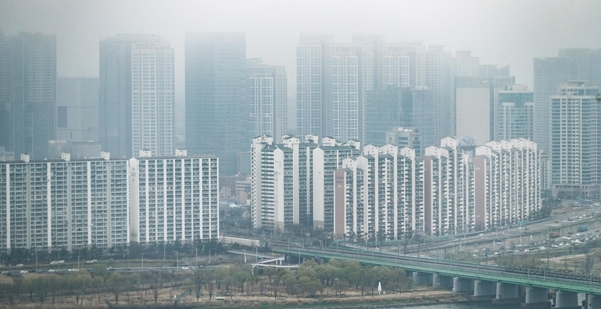Input 2021.04.07 10:00
According to the Korea Real Estate Agency on the 7th, the monthly apartment sales price index in Seoul rose 0.49% last month. Compared to the 0.67% increase in February, the rate of increase was somewhat reduced. Of the 25 autonomous districts, the rate of increase in 23 districts excluding Yangcheon-gu and Dongjak-gu decreased compared to the previous year.
Trading volume also declined. According to the Seoul Real Estate Information Plaza, the number of apartment sales in March in Seoul as of the 6th was 2234, and even if transactions that have not yet been reported are reflected in the future, it is highly likely that it will not exceed 5755 in January and 3854 in February.
The real estate industry interprets that the Seoul apartment market has found some stability. The Korea Real Estate Agency also interpreted that “the growth rate narrowed as the buying trend weakened due to the expansion of the outlook for stability in the mid- to long-term market and expectations for supply measures.”

The biggest variable is the activation of maintenance projects such as reconstruction and redevelopment. As you can see from the case where the Grand National Party (now the power of the people) achieved a complete victory in the 18th general election at the time of making the New Town pledge in 2008, the maintenance project is recognized as a good boon to the vote. In this election, both Democratic Party candidate Park Young-sun and People’s Power Candidate Se-hoon Oh have promised to expand supply, and the maintenance project is regarded as the most influential means of supply expansion.
“If the opposition party candidate is elected in the Seoul Mayor’s by-election, the private-led maintenance project could take a toll in areas where the expectation of a maintenance project such as Apgujeong and Mok-dong, which has recently increased significantly,” said Ko Jun-seok, adjunct professor at Dongguk University Law School. In the case of the case, it will contribute to the stabilization of mid- and long-term house prices in 5-6 years, but there is a possibility that the house price will surge in the short term.”
Considering the presidential election, it is also predicted that the real estate market may fluctuate further if the government policy itself flows toward deregulation. In addition, there is an analysis that if the speed of the government’s public-led maintenance project accelerates, there is a risk of stimulating the nearby real estate market.
Ji-hae Yoon, senior researcher at Real Estate 114, said, “If the government and the ruling party ease supply-related regulations until the next presidential election to enable high-rise development in Seoul, there is no way to prevent the market price from fluctuating in the short term.”
Professor Kwon Dae-jung of the Department of Real Estate at Myongji University said, “If the government is aware of the presidential election and speeds up supply measures such as public reconstruction and redevelopment, the rise can be steepened around the region and neighborhood.” Anything that is likely to change will be a variable.
